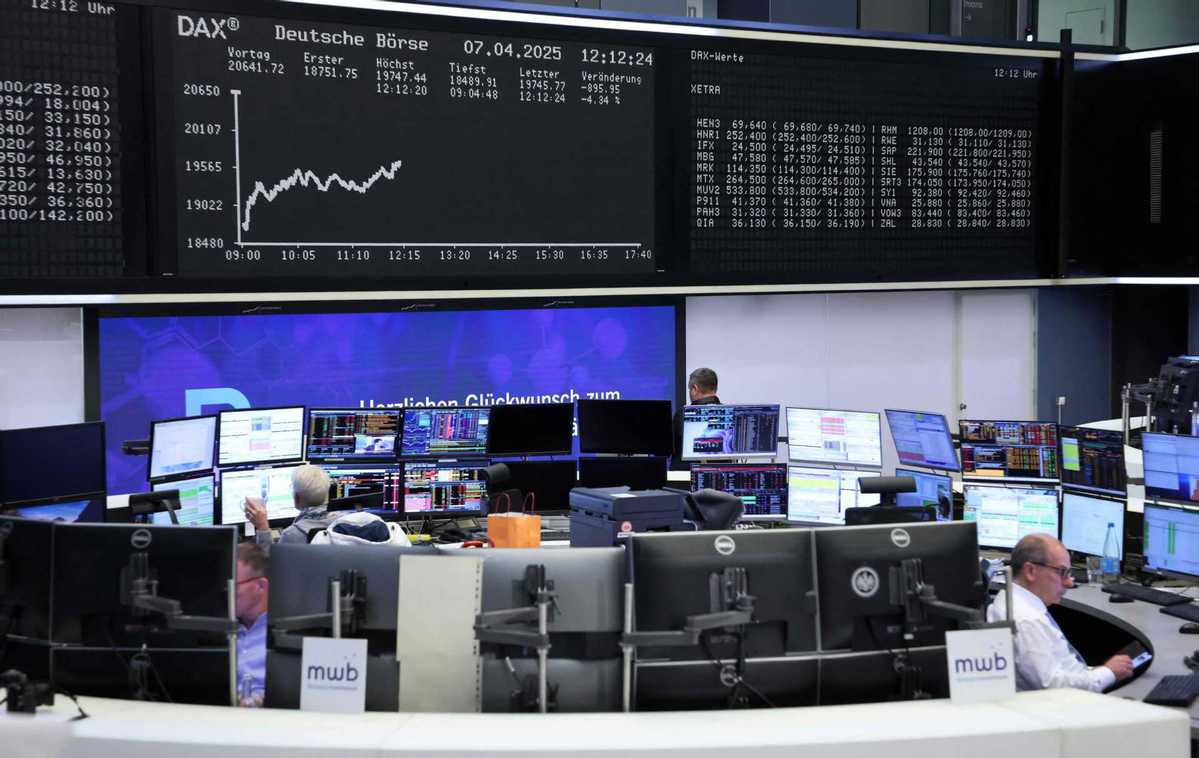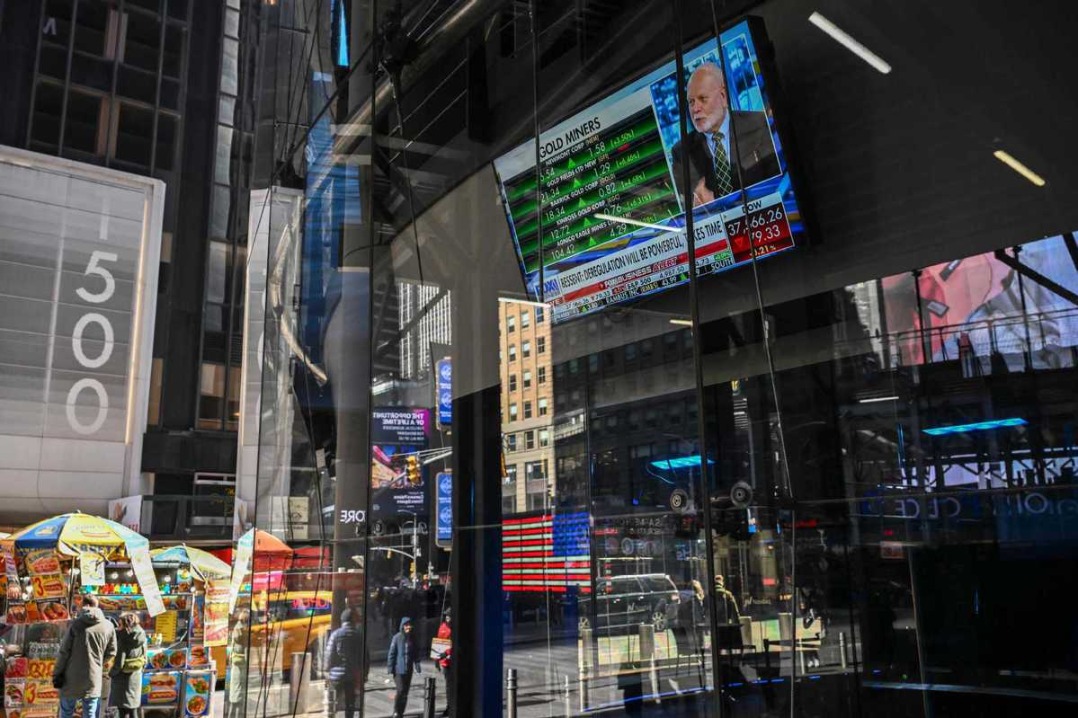European stocks fall due to tariff announcements


European financial markets declined sharply on Wednesday amid heightened global trade tensions, as the United States, European Union, and China announced new reciprocal tariff measures that impacted sentiment across equity and bond markets.
Key European indices showed broad declines as the pan-European STOXX 600 lost 3.5 percent, London's benchmark FTSE fell 2.9 percent, Germany's DAX dipped 3 percent, and France's CAC was down 3.3 percent.
The US trade tariffs now include duties of 104 percent on certain Chinese goods and in response China's Ministry of Finance announced it would raise tariffs on US goods to 84 percent from Thursday, a significant increase from the previously announced 34 percent rate.
The EU also approved its first retaliatory package against US tariffs on Wednesday, with 26 of 27 member states backing the measures. The plan includes 25 percent duties on US goods, ranging from agricultural to industrial products, with initial tariffs due to take effect on Tuesday.
Economic analysts suggest the US policy changes would impact global supply chains and contribute to inflationary pressures, while possibly reducing international trade volumes, reported Reuters.
"China's not going to back down so yes, it is going to lead to further escalation," said Axel Rudolph, senior technical analyst at IG Group. "I don't think that the volatility is anywhere near over. I think that we may well be just at the beginning of a major bear market."
US markets were mixed in their response to the growing trade concerns. By midday on Wednesday, the S&P 500 had declined 0.3 percent, the technology-heavy Nasdaq was up 0.4 percent, and the Dow Jones had dropped by 0.5 percent.
The Bank of England warned on Wednesday, prior to China's tariff announcement, that new US tariffs have significantly elevated risks to global growth and financial stability, marking what it called a "deterioration" in conditions since its November assessment.
"The global risk environment has deteriorated, and uncertainty has intensified," it stated, noting sharp declines in risky assets, particularly those denominated in US dollars.
The bank's Financial Policy Committee, or FPC, highlighted mounting concerns about both economic growth and inflation pressures, with particular focus on the UK's vulnerability as a small, open economy.
The committee warned that "several risks associated with the fragmentation of global trade in goods, and financial markets, have intensified", adding that geopolitical tensions and sovereign debt pressures had also risen globally.
The bank noted that "heightened global uncertainty and perceived higher economic risk" could lead to tighter financing conditions and reduced investment opportunities, particularly affecting highly indebted UK corporations.
A "major shift in the nature and predictability of global trading arrangements could harm financial stability by depressing growth", it added.
While the FPC warned these developments could trigger a "further sharp correction" in financial markets, increasing the likelihood of severe shocks to the financial system, it said the UK's banking system remains "well capitalized" to withstand potential turmoil.
jonathan@mail.chinadailyuk.com

































